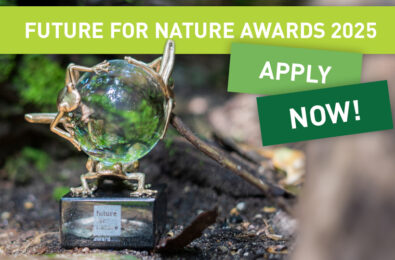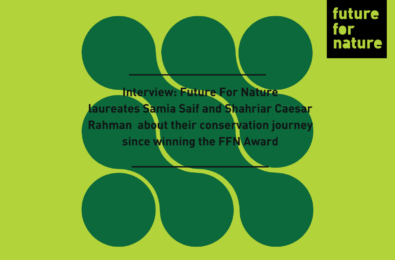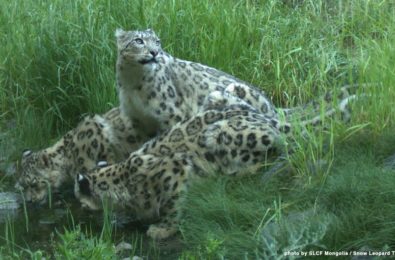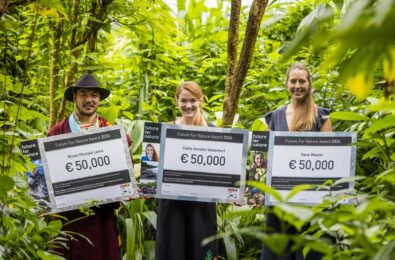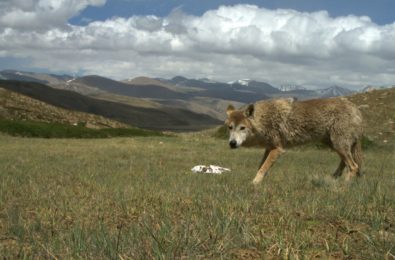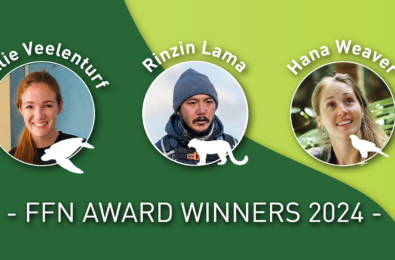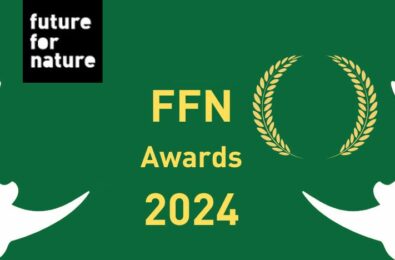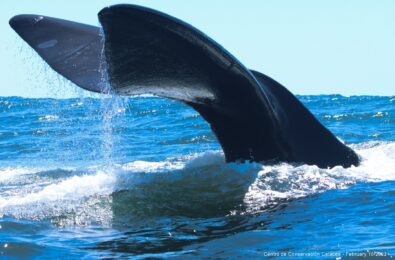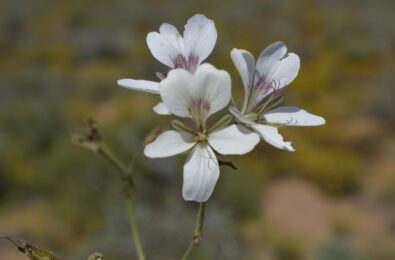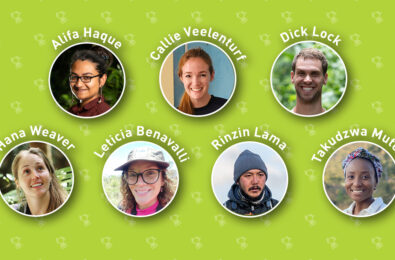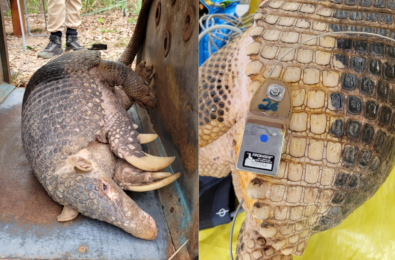Award winning conservationists call for empowering local initiatives to strengthen global biodiversity conservation
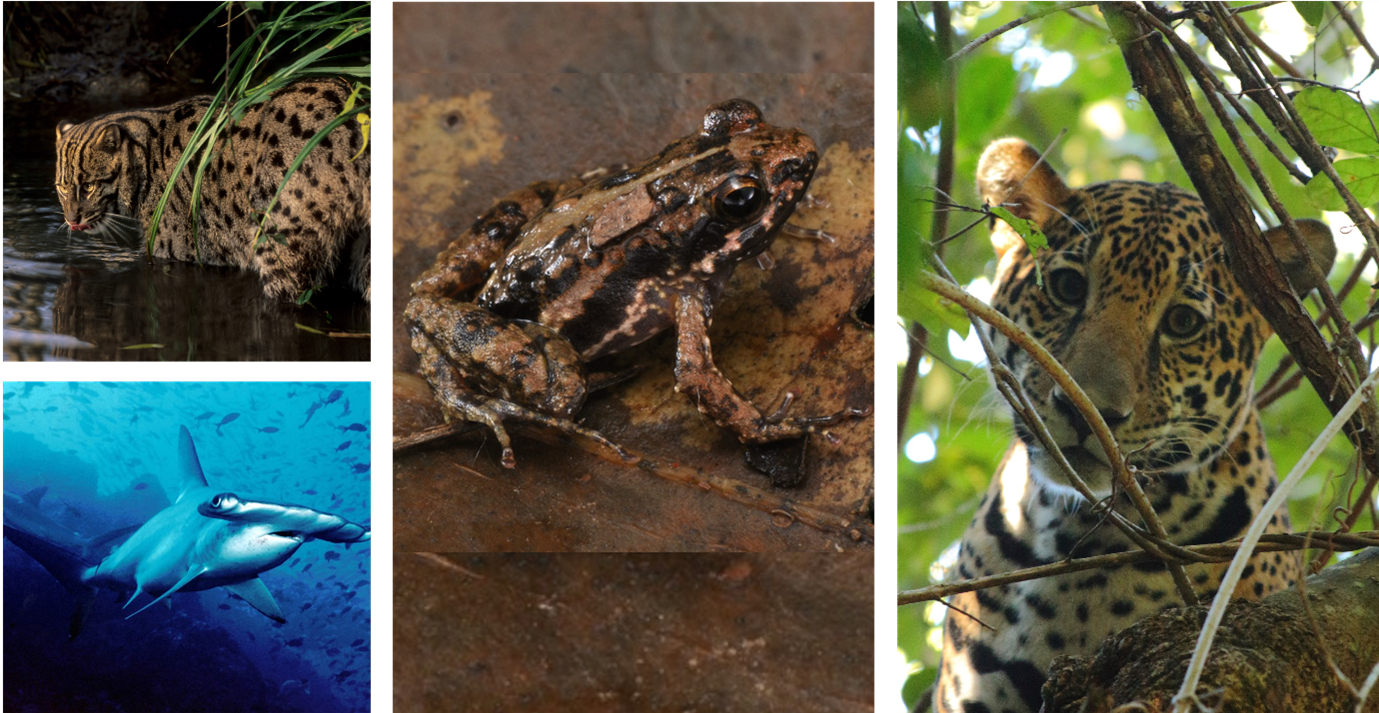
December 01, 2022 – More than 40 conservationist laureates from around the world unite to make an urgent call to world leaders at the 15th Conference of Parties (CoP) of the Convention on Biological Diversity, to highlight the importance of grassroot conservation initiatives and request the integration of their work into multilateral environmental agreements.
Concerned about the increasing habitat loss and declining rates of many species, the laureates of the Future For Nature award sent a letter to the executive secretary of the Convention on Biological Diversity where they state that “the current predominant political and economic system based on dominating nature and seeing it as ‘just a resource’ has proven to be ineffective and unsustainable”. Adding that “governments around the world continue to prioritize ecologically unsustainable development, often choosing to dilute or change current environment/wildlife laws to expedite economic growth”.
As a way forward, the signatories propose that “sustainable and effective conservation requires a systemic change in how we perceive and utilize our home planet and its natural heritage” and call world leaders to empower local conservation initiatives.
All of the signatories’ laureates have vast experience in developing grassroot initiatives that have positively and effectively contributed to behavior changes that improve habitat and biodiversity conservation. However these experiences are frequently underrepresented and underestimated at international agreements and MEAs, where top-down strategies determine decision making processes on biodiversity conservation. That is why they decided to coordinate actions and deliver a strong conservation message to decision-makers at the CoP15 of the CBD.
The Statement describes the problems faced by the laureates in their daily work all around the globe, and some valuable solutions they implement. Examples on rays and sharks in India, puddle frogs in Ghana, jaguars in the Americas and the Fishing Cat in India show how these initiatives, with an understanding of the local realities, are making a difference and can be scaled-up. The Statement concludes with an urgent call to the CBD Parties to include these and similar initiatives in global agreements and strategies for biodiversity conservation.
The laureates call the Parties attending the CoP15 on the CBD to inter alia “shift conservation strategy design and planning from a ‘top-down only’ focus to an integrated design including bottom-up approaches in order to achieve a holistic, co-designed strategy (….), strengthen (inter)national financial and political support (…) and promote the active participation of grassroots organizations and local leaders in multilateral environmental agreements, like the CBD.”
The signatories conclude that nature conservation is a matter of urgency. The inherent paradigm needs to be shifted to achieve a co-design or horizontal approach involving indigenous peoples and local communities to ensure nature conservation from local to global and vice-versa. World leaders can, and must, act as catalysts to bring about a holistic, societal approach that strives to prioritize long-term ecological sustainability of the planet.






